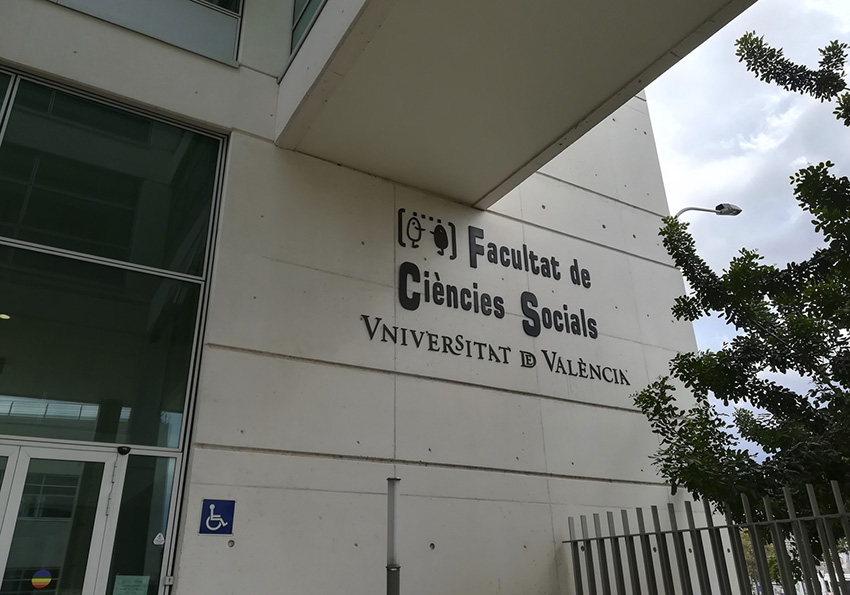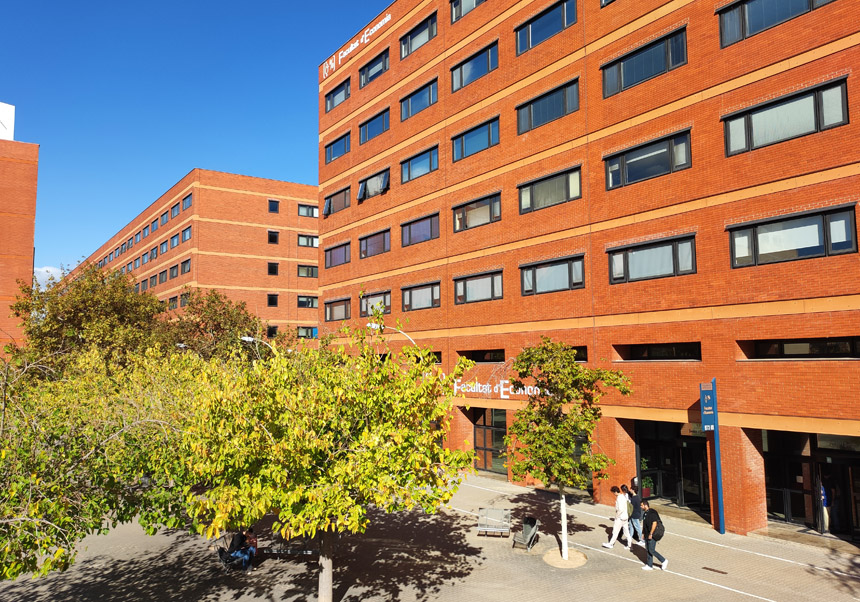Specialists in longevity offer tools to the governments to confront population ageing effectively
- Marketing and Communication Service
- Remei Castello Belda
- September 22nd, 2025

Professors from the Universitat de València Rosa Roig and Ángeles Tortosa have coordinated, along with the GEGOP-Universidad de Viçosa (Brazil) researcher Carmen Pineda, the book ‘Longevidad, Justicia Social y Políticas Públicas: Miradas Interseccionales desde los Territorios’. This work is born as a complementary initiative to the 2nd International Congress on Public Policies about Longevity, celebrated in the Universitat de València in January, 2025 and organised from the Department of Applied Economics and the Universitat de València, to which Roig and Tortosa belong.
The book gathers analyses and proposals made by male and female experts in public policies to help the responsible to create long-lived and sustainable societies. It is part of the 2nd International Congress on Public Policies about Longevity, offering tools to governments to manage population ageing effectively.
The texts analyse many issues about longevity from different perspectives. Many chapters are focused in gender inequalities that affect old women, mentioning work scarcity problems, structural violence and lack of visibility. In it, measures to incorporate the gender perspective in social, health and urban politics for this group are proposed.
Other analyses evaluate how the physical and social environments influence in the life quality of old people. The inclusive urbanism proposals are discussed, cooperative housing and intergenerational planning. Physical space, either urban or rural, impacts in the access to services and in the possibility of living an active old age.
The economic dimension is also tackled, remarking the role of elder people in well-being sustainability. Volunteer work politics and social economy in care are analysed. Furthermore, studies of case about active ageing programmes in Europe and Latin America are presented, underlining the importance of a collaborative governance between State and society.
Also, emerging phenomena such as misinformation in health and climate disaster effects in elder people. The work promotes a vision of long-living as a right, underlining that business and family are not enough to assure a decent ageing; the State must lead in this field.
The text aims to be a guide for policymakers, technicians and programme designers, promoting the necessity of rethinking social contracts. It proposes that a long-living society could be more fair and democratic, as long as the politics anticipating change are put to work and recognise the value of ageing.
The work counts with important contributions of international voices such as Suzanne Serruya, director of the Unidad de Salud y las Mujeres of the OPS/OMS, Mirna Elia García, director of the Instituto Estatal de Personas Adultas de Nuevo León -IEPAM- of Mexico, Grzegorz Gawron from the University of Silecia in Katowice (Poland), Alexandra Lopes of the University of Oporto (Portugal) or Domagoja Buljan Barbca from the University of Split (Croatia), among other names.
The book has been published by the SBAP (Sociedad Brasileria de Adminitración Pública (SBAP) and is available in free online access.
Categories: Estudis , Recerca, innovació i transferència , Lletres
















